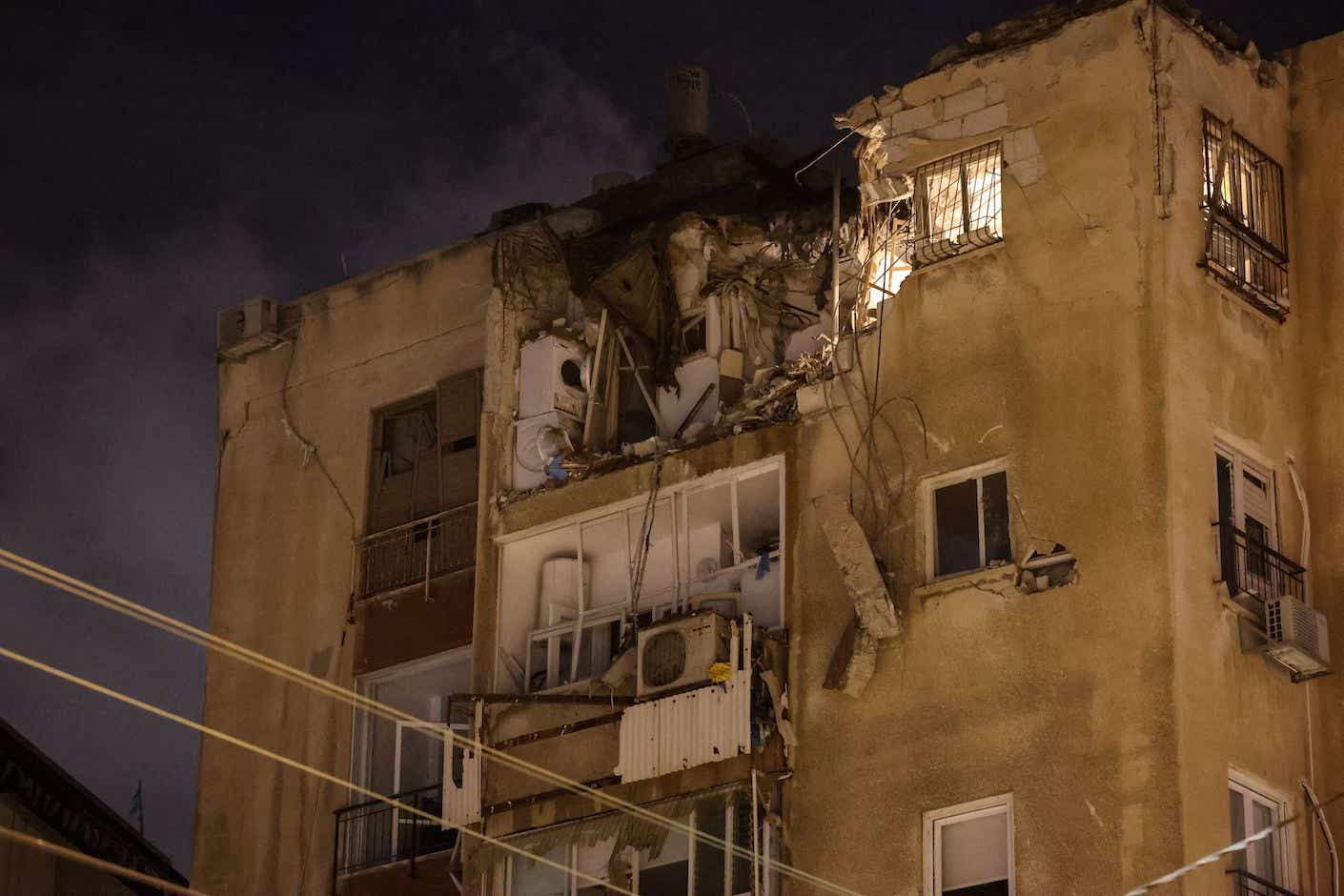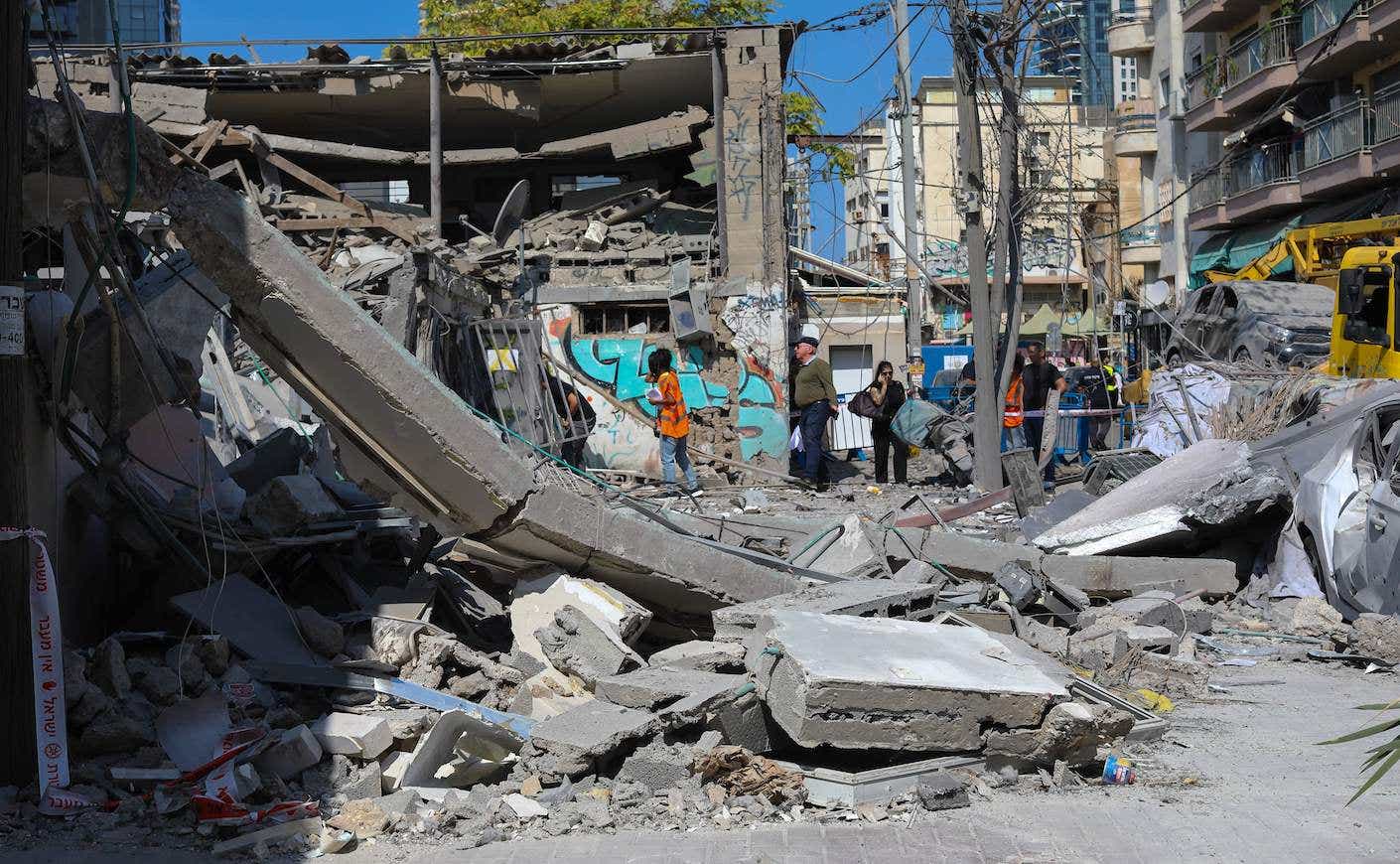Last Saturday, Rebecca Brindza — an American who lives in Tel Aviv — “woke up to rockets.” The 30-year-old Virginia native immediately checked the news and watched in shock as the day’s events unfolded. “It was absolutely horrifying,” she says. “[My partner and I] were sitting in our home’s safe room, just staring at each other.”
Since Hamas’ attack on Israel on Saturday, Oct. 7, more than 1,200 people — including 189 soldiers, have been killed in Israel — while at least 1,000 people have been killed in Gaza. There are also an estimated 150 Israelis being held hostage in Gaza, many of them civilians. While the majority of the brutality has been reported near the Gaza Strip, the tension has resonated farther into the country as well.
Since that day, Brindza has mostly stayed inside, and she and her partner have rallied their resources to aid those suffering and on the frontlines.
While what Brindza calls a “massive failure” on the part of Israeli intelligence has shaken the country to its core, she sees hope in the way the Israelis come together — whether that’s reservists volunteering to fight, civilians driving equipment to the frontlines, or expats like herself helping those suffering navigate this incredibly tense time.
Brindza has been connecting with survivors and the loved ones of those who are missing, have been killed, or are being held hostage, to help them get their stories out. We spoke to Brindza about her efforts and the current conditions in Tel Aviv.
Katie Couric Media: How are things in Tel Aviv today?
Rebecca Brindza: We've only had one barrage of rockets today, so far. There were a few in Holon and in other areas, but Tel Aviv’s been relatively quiet. Yesterday was a little bit crazier in terms of rockets.
I haven’t really left my house in a few days. They've asked us to stay inside, but a lot of people are doing volunteer work. Others are staying in the safe rooms in their homes, if they have them, or going to their offices because a lot of the office buildings in the city have pretty good safe rooms. Most restaurants are closed. People aren’t just casually walking around. People are driving to funerals, but otherwise, the streets are very silent.
What went through your mind when you first heard those rockets on Saturday?
“Oh shit, I need to start running.” The barrage that we got on Saturday morning, I wasn't expecting that on any level. Things are never really quiet, if you pay attention and read the news, but I don't think anyone was expecting anything like that. We woke up to rockets, and then the first thing we did is check our phones to see what's going on in the news. We started getting stories of people being massacred in the South. That was absolutely horrifying. The two of us just stared at each other, sitting in the safe room in complete and utter shock. Then we were glued to the phone for the next few hours, monitoring the entire situation. We didn't have any other rockets until that evening in Tel Aviv when we had one that hit about 200 feet from the house. Aside from that, we've just been following the stories of all of these families who’ve been directly impacted. Unfortunately, they’re absolutely horrible and graphic, and Hamas is documenting everything.
As an American who’s lived in Israel for 10 years, do you feel like anything about being in Israel for a decade could have prepared you for what you're experiencing right now?
No. I studied emergency and disaster management in school, and I know what to do on a preparedness level. We did study mental health first aid, but I don't think anything can emotionally prepare you for an event like this, ever. We've all had to run from one bomb shelter to the next before, but I don't think anything can ever prepare you for what's happened in the South, and the massacre there.
What about your Israeli friends and family — how have they been? I'm sure it's a different experience for them.
It's a mix: Some people are just numb and they’re sitting and waiting. Some people who’ve lost loved ones haven't been able to fully respond to the scenario yet. They're going to the funerals, but I think they’re still in utter shock. And there are others who have mobilized. I have friends who volunteered to pack boxes filled with equipment for the military and drove them down to Zikin, which is basically just north of Gaza. So people are really mobilizing.

Your partner is Israeli and served in the IDF. How is he doing?
It’s been hard. The dialogue in the literature that Hezbollah and Hamas have been putting out for years says, “I hate Israel. I want to wipe it off the face of the earth, and I want to kill everyone.” And what my partner would tell you is that we've been ignoring that. We've been saying, “We can fix the situation there. We can find a peace agreement. We can figure this out..” I think what many Israelis are feeling right now is, How could I have been so caught off guard? I really do feel stupid, for lack of a better word, for believing that perhaps something could be different. There's something really sad about that. There's a loss of hope there.
But I also have confidence, because I know that this isn’t how the entire Palestinian population feels. [Hamas] is an extreme radical group and [they have] ideological hate. That's not every single Palestinian. But the question is, how do you bury an ideology that wants to erase you?
You've spoken to a lot of families of hostages, and survivors of the attacks. What are some of the things you're hearing from them? How are they coping?
You have some families that had to try to plan a funeral while this is all going on. Then there are individuals who came home to their families and they’re trying to find a way to sleep, eat, and just be there for their families. Some people are trying to stay off screens but others want to share their stories, especially the families of hostages. Some of the families think that by sharing their stories with the global population, people will hopefully understand what's happening here and how hard it is, at times, to be an Israeli and to be a Jew.
As an American in Israel, what do you want Americans to know and understand right now?
That this is about Israel, but it's also not about Israel. The way that we step up and go out of our way to protect our people is something that I think is massively unique. That an entire country can just really snap together at a moment's notice. And even though this was a surprise and there was a massive failure in that, and we lost so many people, there is also a strong attitude of togetherness. I think the bigger thing is figuring out how to make sure it doesn't happen again.
Terror is not acceptable, and hate begets hate. You can promote your politics by voting or by marching and demonstrating — not with weapons and not with hate speech that promotes exceptional violence. We have to figure out how to put an end to all of the terror that's going on.









